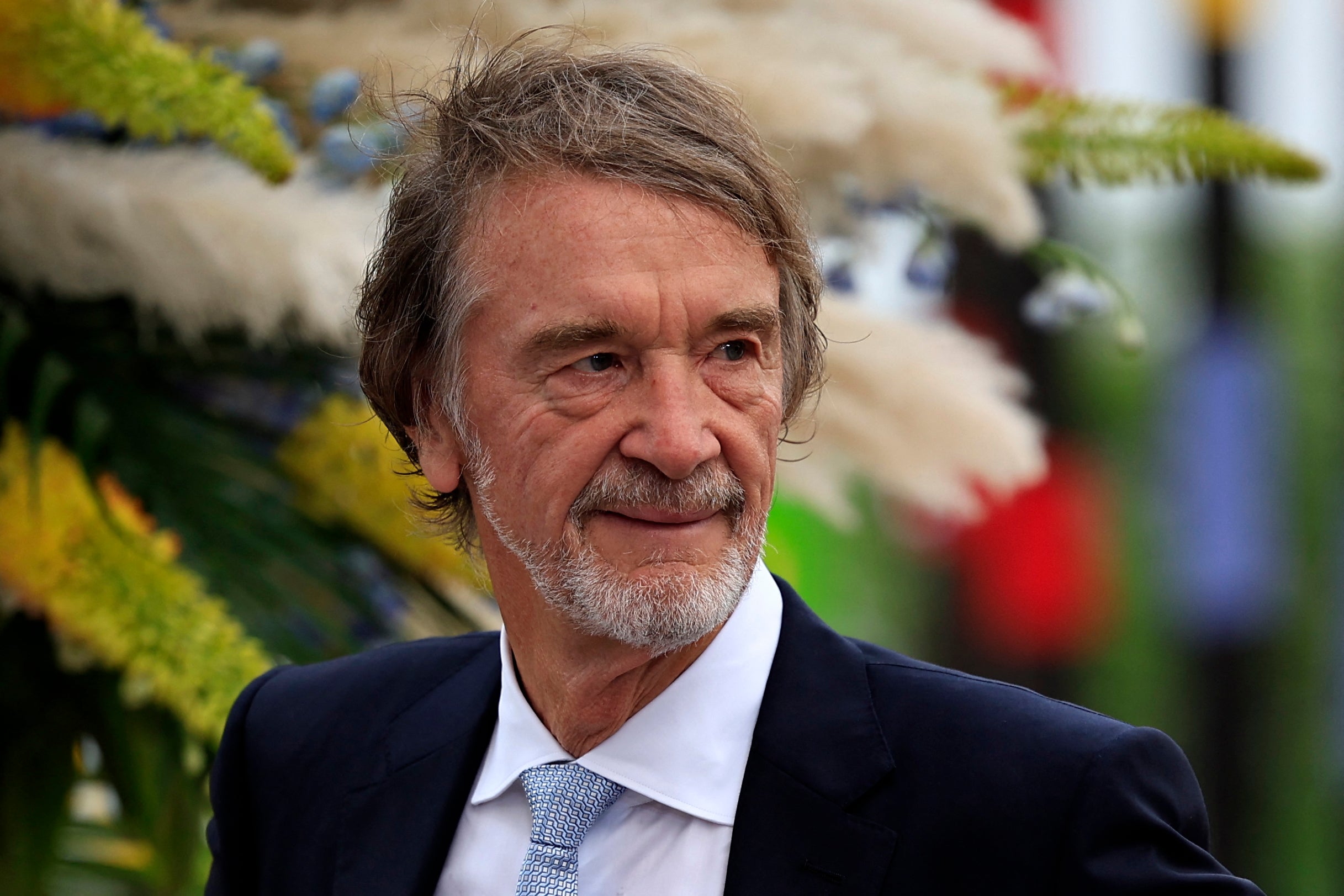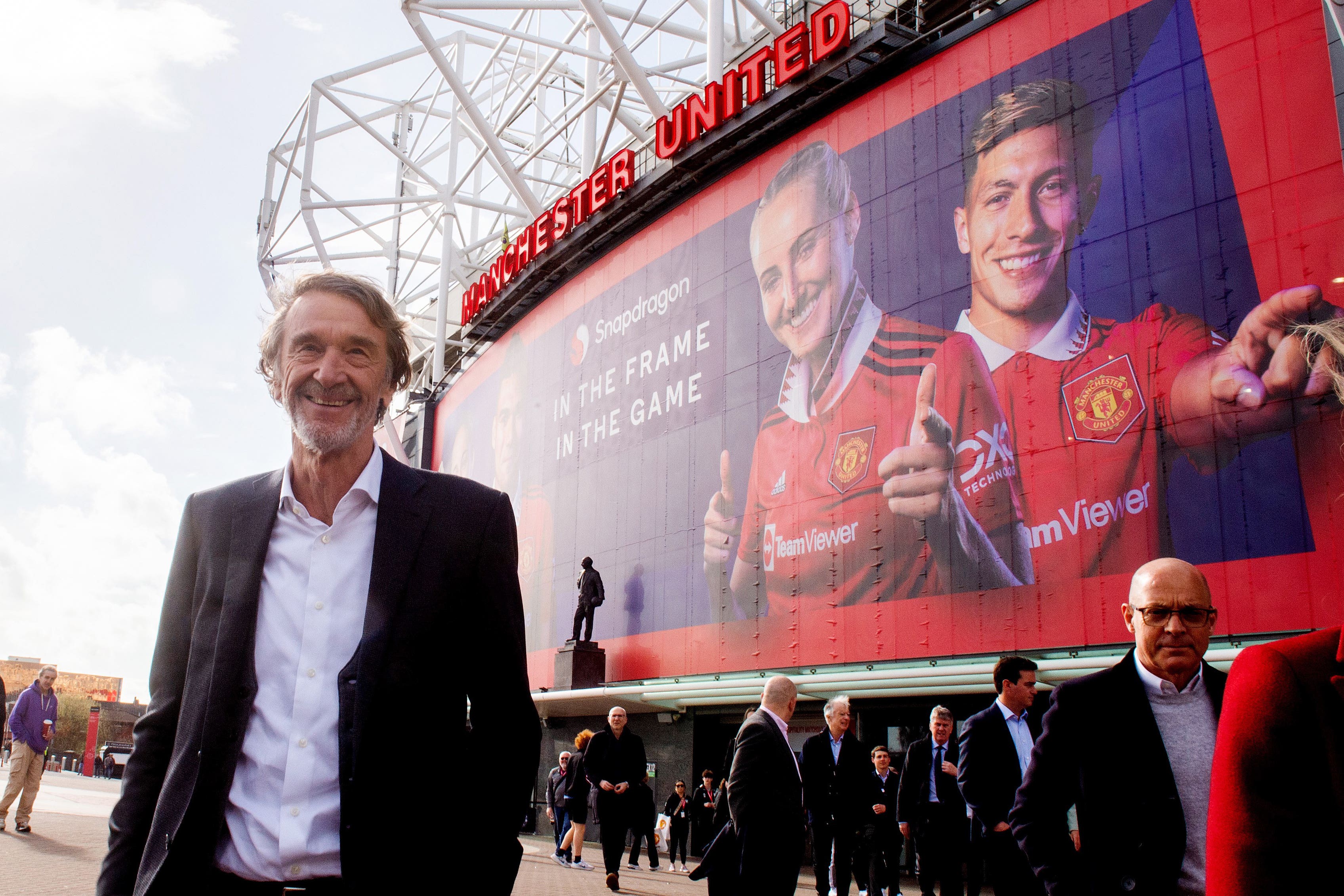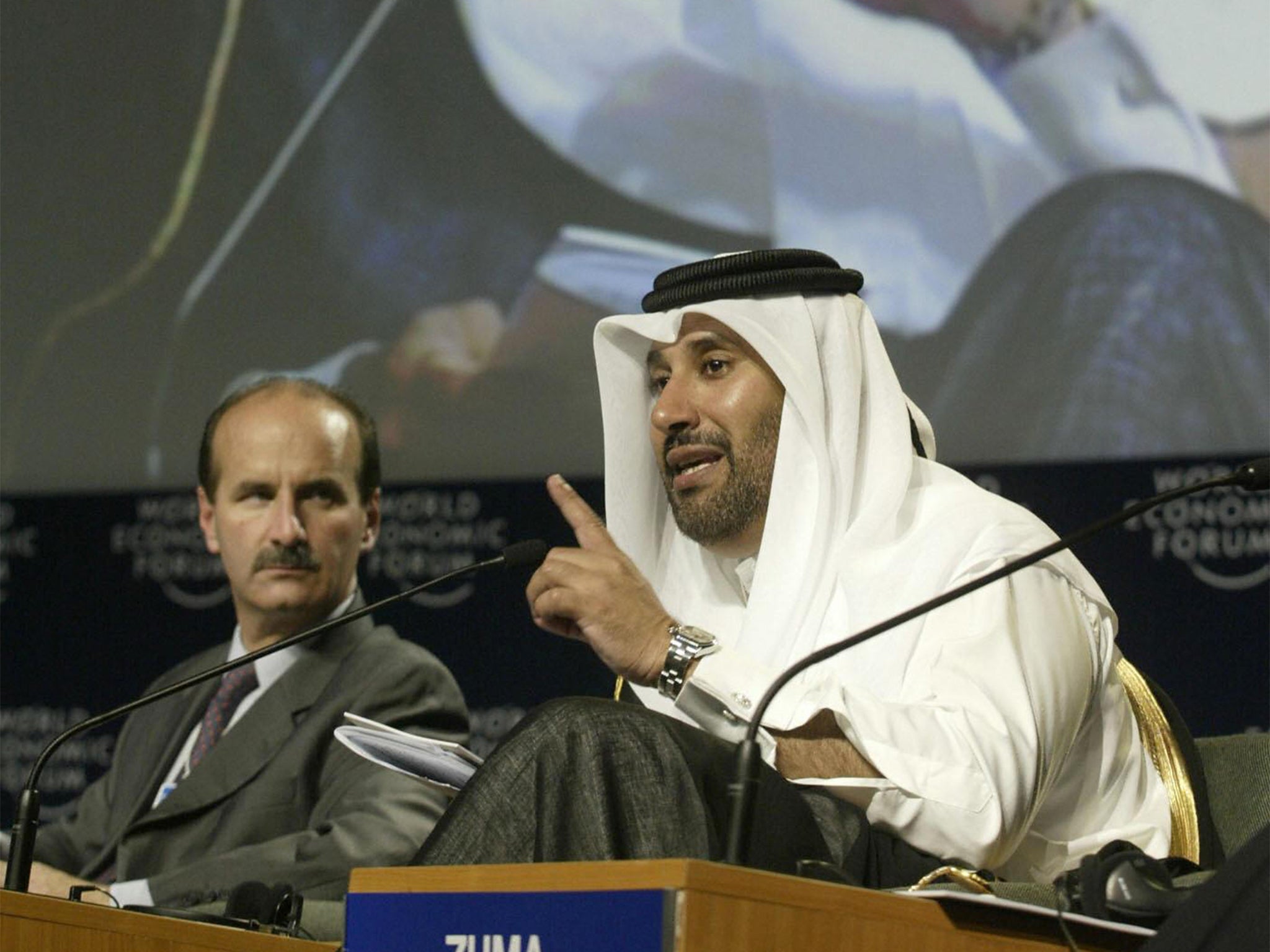How Sir Jim Ratcliffe can reshape Man Utd by addressing pivotal issue
The petrochemicals billionaire is poised to claim a quarter of the club from the Glazer family, but Richard Jolly outlines why the minority ownership deal brings more questions than answers


Your support helps us to tell the story
From reproductive rights to climate change to Big Tech, The Independent is on the ground when the story is developing. Whether it's investigating the financials of Elon Musk's pro-Trump PAC or producing our latest documentary, 'The A Word', which shines a light on the American women fighting for reproductive rights, we know how important it is to parse out the facts from the messaging.
At such a critical moment in US history, we need reporters on the ground. Your donation allows us to keep sending journalists to speak to both sides of the story.
The Independent is trusted by Americans across the entire political spectrum. And unlike many other quality news outlets, we choose not to lock Americans out of our reporting and analysis with paywalls. We believe quality journalism should be available to everyone, paid for by those who can afford it.
Your support makes all the difference.Call it a belated birthday present, perhaps. Sir Jim Ratcliffe turned 71 last month. For those who have amassed such riches, it is less a question of what others buy them and more what they buy for themselves. And in Ratcliffe’s case, at a cost of £1.3bn, the answer may be a quarter of the club he has supported since he was a child in Failsworth.
There are details to iron out and no deal will be finalised just yet but the Manchester United board will vote – though probably not on Thursday – whether to accept Ratcliffe’s offer.
The petrochemicals billionaire has already seen off his main competitor: if there was a widespread assumption – one that may have been shared by the Glazer family – that Sheikh Jassim bin Hamad al Thani would dramatically raise a bid that many believed was financed by the Qatari state, it never happened.
Ratcliffe has been a triumph of persistence and flexibility, amending his own offer from a majority to a minority stake, negotiating with the Glazers. It comes to something when a man of his wealth feels like the underdog but the outsider has prevailed. While Sheikh Jassim also presented himself as a United supporter and while Ratcliffe had attempted to buy Chelsea, the Ineos co-founder has the feel of the local boy made good. And, at points in the past, a place on a football club board would have felt a reward for many who matched that description. Now the sums are so massive that the motivations become most instructive. Thus far, the questions outnumber the definitive answers.
Will United be a trophy asset for Ratcliffe? Perhaps not immediately, given that the Glazers will remain the biggest shareholders, at least in the short term. Is it simply an astute business deal? Not on the face of it, given that Ratcliffe has valued United at around double its market price and Sheikh Jassim felt the Glazers’ demands were outlandish. Yet Ratcliffe has proved he can make money: that 25 per cent could yet yield a profit and the Glazers’ reluctance to walk away seemed to stem in part from a belief the club will be worth more again in the future.

The most pertinent issue for many supporters, who have long called for the Glazers to go, is whether it leads to a full takeover; and if so, whether the terms of Ratcliffe’s buy-in ensure it, or merely make it optional. Moreover, the new structure, assuming it is improved, does not necessarily promise the investment United require: with other parties holding 75 per cent of the club, Ratcliffe would have less incentive to put his own money in. The presumption at the moment is that the £1.3bn will largely go to the Glazers, not United. The general sense is the club need the money more than their owners.
Sheikh Jassim’s promises will now never be tested but he had pledged to invest more than £1bn; with the need to either revamp or rebuild Old Trafford, any plans to improve the infrastructure the Glazers have neglected will not be cheap. So if Ratcliffe pursues such plans, will the debt – currently at £725m – rise over £1bn? United’s current scope for signings is limited more by Financial Fair Play than anything else, but could he bring an improvement in recruitment?
The feeling is that Ratcliffe wants control of the football side of the club, where United’s underachievement has been particularly grievous in the last decade. Would that be beneficial? Given United’s record, it may be welcomed. Ratcliffe’s own record in sport is mixed: Nice are currently second in Ligue Un but their fortunes have fluctuated during his ownership and have been pockmarked by transfer-market missteps. Lausanne have been both relegated and promoted under Ratcliffe’s regime. He bought the most successful outfit in world cycling, then known as Team Sky; since rebranded as Ineos, but they have lost their pre-eminence and appear in an identity crisis.
But if his initial emphasis is on the pitch – rather than the commercial side of the business the chief executive, Richard Arnold, oversees – there is an obvious focus on the director of football, John Murtough. Inside Old Trafford, there is already a recognition the team has achieved too little and their record in recruitment has been underwhelming since Sir Alex Ferguson retired. Some nevertheless feel that there is more structure and strategy since Ed Woodward handed over the reins: they can point to a new training centre for the women’s and academy teams, the appointment of Erik ten Hag, and a fine season last year.

Yet a stumbling, stuttering start to this season, made worse by back-to-back 3-0 defeats to Man City and Newcastle, the struggles of several recent signings and the reality that around £400m has been spent in the last two summers feels ill-timed. Accusations United have overpaid are scarcely new but will it prompt Ratcliffe to seek change behind the scenes? The initial noises are that, despite the team’s slump, Ten Hag is seen as far more of a solution than a problem, though it would be instructive to know if that stance were maintained should the next 10 games bring another six defeats. Shifts in ownership do not always bode well for incumbent managers, whereas the Dutchman has enjoyed the backing of Murtough and the Glazers.
Ten Hag always projects an air of confidence and decisiveness but many at Old Trafford could be forgiven for wondering what Ratcliffe’s investment means and what comes next. If it has scarcely helped United that they have lingered in limbo for 11 months, since the Glazers put the club up for sale, a boardroom vote could instead bring about a time of uncertainty.



Join our commenting forum
Join thought-provoking conversations, follow other Independent readers and see their replies
Comments